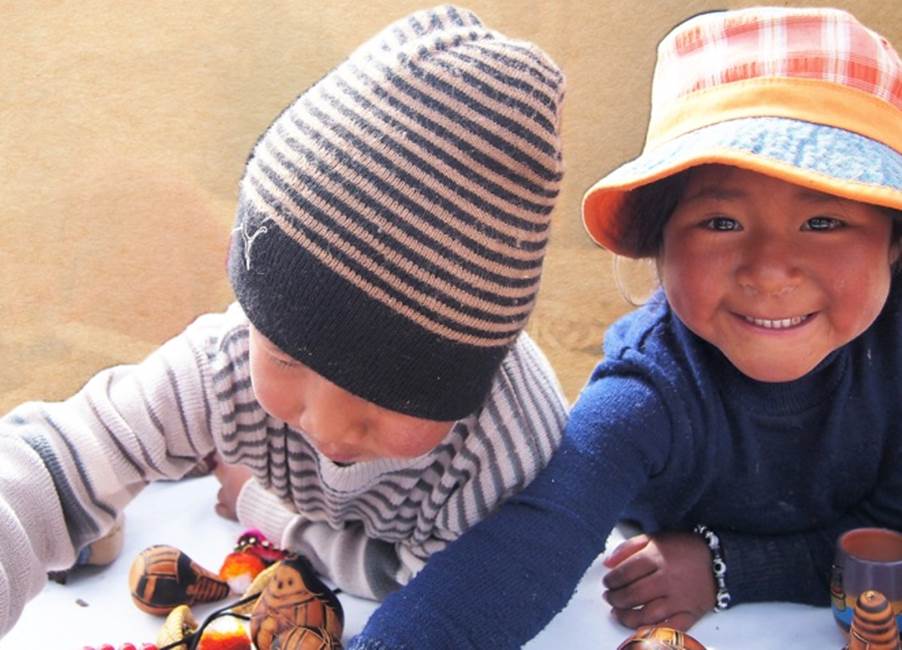<Ruff, ruff>. Look at Rocky, he is very nice and he loves to play with children.
<Ruff, ruff>. Rocky is hungry, so we are going to give him something to eat, here is his food. Can you put 5 pieces of kibble in his plate, counting out loud one by one? Mmmm, yummy, he likes this food.
<Ruff, ruff>. Rocky wants some more. This time, can you give him 10 pieces of kibble and count them out loud as you put them in his plate? Mmm, yum yum yum. Rocky is happy, his tummy is full, let’s put him over here to take a nap.
Just in case you are wondering what the heck is going on, Rocky is a puppet dog that PRIDI uses to approach the youngest children of Latin America children and his questions are actual items of PRIDI scales. So, now the evident follow-up question is… And what is PRIDI?
PRIDI is the Spanish acronym for the Regional Project on Child Development Outcomes. It consists of a package of tools, data and analyses developed by the Education Division of the Inter-American Development Bank to have comparable data on child development outcomes. PRIDI recognizes child development as a holistic and integrated process that encompasses a number of interrelated domains of which we measure four: cognition, language and communication, motor and socio emotional. PRIDI also captures factors associated with early child development such as household and community characteristics, as well as access to ECD services.
What was the reason for developing PRIDI? Probably the main reason that motivated our efforts was the fact that internationally comparable, nationally representative data on child development to inform and guide policies, are largely absent in Latin America and the Caribbean.
[vsw id=”117520615″ source=”vimeo” width=”425″ height=”344″ autoplay=”no”]
PRIDI’s launch event in Washington DC
Two main principles guided our activities: (i) children develop in an integral manner and the data used to assess their development should capture this; (ii) the second principal is that children should be able to achieve basic developmental milestones and competencies before entering school, independent of their race, gender, socioeconomic background, origin and language. For example, children who can classify objects by their shape and by their color, children who know what a triangle or square is, and those who can sequence a series of simple pictures, are children who will likely get off to a good start in school.
PRIDI evaluates children between 24 and 59 months (basically 2 to 5 years of age) in their homes. Given that many children in this range are shy or at the very least apprehensive of strangers, Rocky (a puppet dog) helps break the ice.
So how exactly do we evaluate child development?
PRIDI applies two main approaches for evaluating child development. Cognition, language and communication, and motor development are assessed via direct observation of the child through the application of the scales. Socio-emotional development, however, is assessed via a survey of questions about the child that are directed to the mother or principal caregiver. Here, some of the things we ask about include whether the child can play by herself for at least 15 minutes; if she likes to play with other children, and if she helps to do basic things around the house when asked.
With relatively few items, PRIDI allows for a holistic measurement of child development. Moreover, the data we generated are regionally comparable and allow us to identify development gaps that may exist between different groups of children. The materials necessary for the application of the Scale are of common-usage in the region, of minimal cost, durable and easily transported in a backpack: they include small wooden blocks, colored pencils, a ball, plastic animals, cards, and our dearest friend Rocky.
<Ruff, ruff>. That’s Rocky. I must have woken him up when I said his name. I think he’s probably ready for a another long walk accross Latin America. See you later!



Leave a Reply